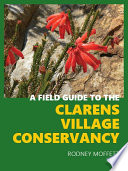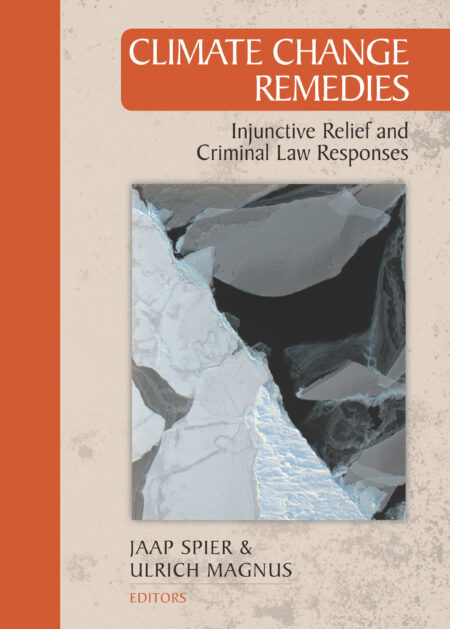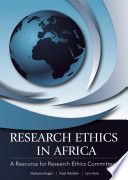-

A Field Guide to the Clarens Village Conservancy
0R395,00With the scenic village of Clarens located on the western edge of the Maloti-Drakensberg, the Clarens Village Conservancy offers a taste of biodiversity quite special to this region: it forms an area of overlap between western arid elements, moist eastern elements, Afromontane elements, and Drakensberg alpine elements. As such, there is a treat for adventurers around every corner in this rugged environment. Thanks to active and well-managed civic organisations such as the Clarens Village Conservancy, this natural heritage will not go unappreciated. We are truly privileged to live and work in this environment, and hope that this Field Guide will inspire many visitors to come to marvel at our mountains and its treasures.
Dr Ralph Clark
Director: Afromontane Research Unit
Qwaqwa Campus, University of the Free State
Honorary Life Member: iVungu River Conservancy (KZN) -

African Military Geoscience
0R420,00This eight-chapter volume, African Military Geosciences: Military History and the Physical Environment, is a tour-de-force covering nearly 500 years of African military geosciences. It is a truly global book that reveals keen insights into regional, national and international military-forces activities centered in Africa and how the understanding of geosciences plays important roles. It is written for the specialist, but also attractive to the general military buff ? well referenced and illustrated with figures from primary sources, historical catalogues and compendia.The publication further explores the ?age of sail?, harbour defenses, the trafficability of desert environments and marshes, as well as climate?controls on sailing or land battles. There is even insight into an elite artillery unit staffed by women during Second World War ? essentially covering the whole gamut. Ultimtely, the reader explores a nearly 500 year journey around the African continent and beyond.
-

Climate Change Remedies
0R340,00Climate change poses very serious risks to mankind. Adaptation and damages are emphasised more and more. Although adaptation is important, priority should be given to prevention (mitigation). The contributions in this volume emanate from an international research project that deals with a legal kaleidoscope of legal issues and focuses primarily on preventive remedies. The contributions of Spier and Magnus tackle injunctive relief and discuss the myriad of legal questions courts have to answer if they are willing to grant injunctive relief. This part of the book addresses procedural, private international and substantive law. Kemp’s contribution discusses the role criminal law could play to come to grips with the threats of climate change. So far, the greater part of the debate is about the United States, Europe and, increasingly, Asia. Ruppel fills this gap by painting an African perspective.
eBook: View eBook Version
-

Climate Change Remedies
0R0,00Climate change poses very serious risks to mankind. Adaptation and damages are emphasised more and more. Although adaptation is important, priority should be given to prevention (mitigation). The contributions in this volume emanate from an international research project that deals with a legal kaleidoscope of legal issues and focuses primarily on preventive remedies. The contributions of Spier and Magnus tackle injunctive relief and discuss the myriad of legal questions courts have to answer if they are willing to grant injunctive relief. This part of the book addresses procedural, private international and substantive law. Kemp’s contribution discusses the role criminal law could play to come to grips with the threats of climate change. So far, the greater part of the debate is about the United States, Europe and, increasingly, Asia. Ruppel fills this gap by painting an African perspective.
Print: View Print Version
-

Environmental Ethics
0R360,00This well-constructed, and highly original, sourcebook integrates educational materials for teaching environmental ethics with theoretical reflections. The book is set to contribute immensely to its aim of taking ethics out of philosophy departments and putting it into the streets, into villages, and on the EarthNto make ethics an everyday activity, not something left to experts and specialists. Context-based activities are presented in almost every chapter.
While it acknowledges foundational theories in environmental ethics, and the work that they continue to do, it wholeheartedly embraces a growing body of literature that emphasises contextual, process-oriented, and place-based approaches to ethical reflection, deliberation, and action. It walks on the ground and isnOt afraid to get a little dirty or to seek joy in earthly relationships. And it ultimately breaks with much Western academic tradition by framing Oethics in a storied worldO, thus making room to move beyond Euro-American perspectives in environmental issues. This work will be of interest to school teachers and other non-formal and informal educators, teacher educators, college instructors, university professors, and other professionals who wish to bring environmental ethics to the forefront of their pedagogical practices.
eBook: View eBook Version
-

Exploring Sustainability Science
0R575,00Southern Africa is well-blessed with a diverse and vibrant human population and a wealth of natural capital. The key challenge for sustainable development is to grow society’s capacity to use this natural capital to meet the needs of the region’s human population, especially the poor, in ways that sustain environmental life-support systems. Collaborating across disciplines, the authors explore the underpinning principles and the potential of sustainability science in a number of case studies.
eBook: View eBook Version
-

Living with Little Monsters
0R350,00The tragic coronavirus pandemic of 2020-2022 opened the worldOs eyes anew to the urgent need for a better understanding of microorganisms, whether viruses or bacteria, in order to develop best practices for reducing the risk of dangerous infections. Ideally, every household should have sufficient knowledge of how viruses and other kinds of microorganisms can damage human and animal health. Now, with exquisite timing, Prof Pieter Gouws at the Centre for Food Safety (CFS), in the Department of Food Science at Stellenbosch University, and food scientist Dr Michaela van den Honert, have collaborated on a scientific household guide for Oliving with little monstersO, introducing the reader to an array of potentially harmful microorganisms. Nor have the authors neglected the bacteria which play a positive role, for example, in the human gut. They have gathered the latest scientific evidence for an extensive set of descriptions of specific microbes to watch out for and how best to minimise the risk of being infected by them. By so doing, they can empower ordinary consumers, along with their families, to live healthier, less risky, daily lives.
eBook: View eBook Version
-

People’s and Workers’ Climate Justice Charter Futures for South Africa
0R0,00The worldOs first Climate Justice Charter emerged out of campaigning by the South African Food Sovereignty Campaign and Cooperative and Policy Alternative Centre during the recent drought (2014-2021) in South Africa. It was developed in dialogue with drought affected communities, labour unions, social justice and environmental justice organisations, faith-based communities, youth and children, climate scientists and climate justice activists. Moreover, it translated climate justice ideas, part of global struggles for the past two decades, for frontline struggles in the country. “This book focuses on South Africa, but captures the dilemma of all Africa and the Global South. It lays bare the climate injustice and polycrisis in the world, the resilience of the peoples and the intergenerational crimes committed by perpetrators. We are slipping beyond injury time, at the precipice. Read this book, share the message and join forces to chart the way to life and sanityO (Nnimmo Bassey).E
-

Research Ethics in Africa
0R250,00The aim of this book is to provide research ethics committee members with a resource that focuses on research ethics issues in Africa. The authors are currently active in various aspects of research ethics in Africa and the majority have been trained in the past by either the Fogarty International Center or Europe and Developing Countries Clinical Trial Partnership (EDCTP) sponsored bioethics training programmes .
-

The History of Geophysics in Southern Africa
0R695,00Geophysics is a comparatively young science which only evolved as a distinct discipline during the 19th century. However, its phenomena (like earthquakes, tsunamis, volcanic eruptions and lightning) had been objects of fear, curiosity and speculation since ancient times. In this book, Johan de Beer and his research team reveal that geophysical activity in South Africa can be traced back to as early as 1488. This is a truly astonishing revelation which deserves to be firmly entrenched as part of the country’s proud history. The book also discusses the history and formation of South African geophysical institutions that made a huge and seldom acknowledged contribution to the technological development of southern Africa.
eBook: View eBook Version
-

The Prince Edward Islands
0R315,00This book provides a modern, synthetic overview of what is known about the structure, functioning and interactions of marine and terrestrial systems at the Prince Edward Islands. Building on more than 50 years of biological, geological, meteorological, and oceanographic research, it demonstrates not only how inextricably linked marine and terrestrial systems at the islands are, but also how global environmental challenges, such as climate change, biological invasions, and over exploitation, are playing out at the regional and local levels in the Southern Ocean.


